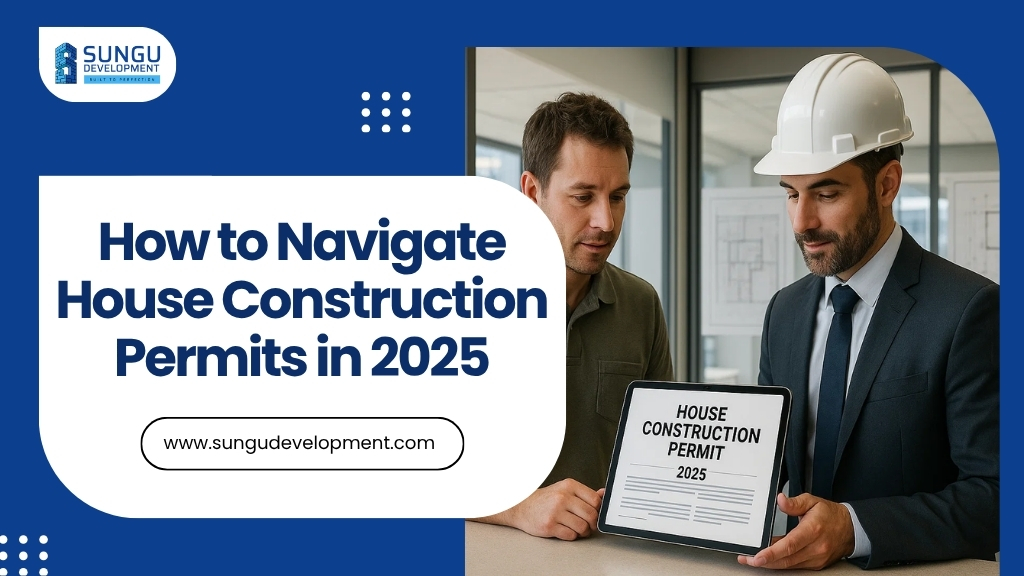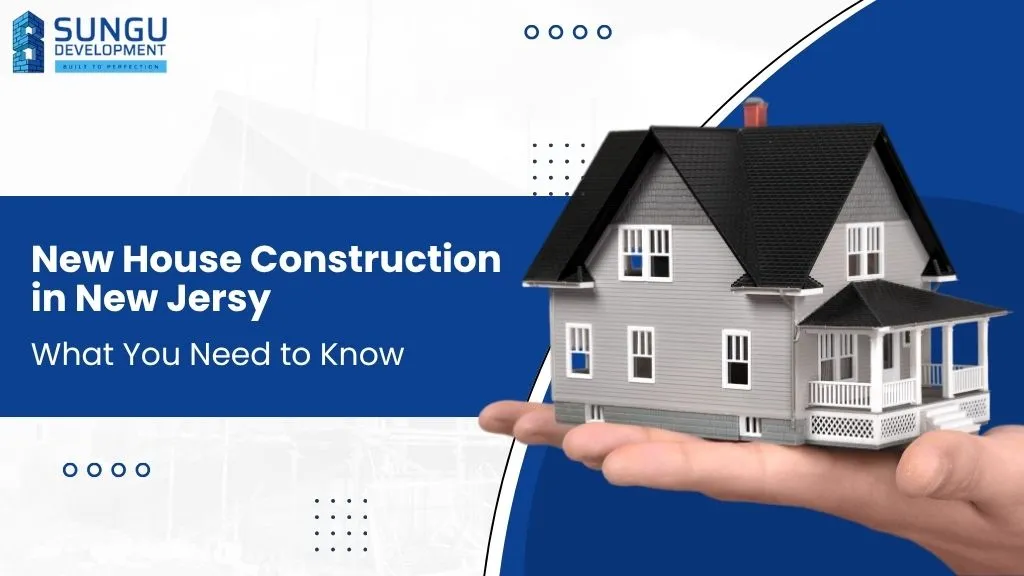
In the world of home construction, one of the first hurdles you will face is understanding and securing the necessary permits. These legal requirements are put in place by local government bodies to ensure that construction projects are safe, legal, and meet community standards. As we enter 2025, the permitting process has evolved with new regulations, technologies, and requirements. Whether you’re a first-time builder or an experienced contractor, navigating house construction permits effectively is crucial to ensure your project runs smoothly.
What Are House Construction Permits?
House construction permits are official documents issued by local municipalities, granting permission for a construction project to proceed. These permits serve as a legal acknowledgment that the construction complies with local building codes, zoning laws, and safety standards. There are several types of permits you may need, including:
- Building Permit: Allows you to begin physical construction.
- Electrical Permit: Ensures that all electrical work is done safely and up to code.
- Plumbing Permit: Covers installation and changes to plumbing systems.
- Demolition Permit: Required when tearing down a structure.
Each of these permits serves a specific purpose and must be obtained before work begins.
Key Changes in House Construction Permits in 2025
2025 sees a few notable changes in the house construction permit process. The most significant of these changes revolve around the integration of digital tools and the introduction of stricter environmental regulations. Many municipalities have shifted towards online platforms where you can submit your applications, track the status of permits, and communicate directly with local authorities. Additionally, new sustainability requirements may affect your project, including energy-efficient building practices and eco-friendly material use, all of which can require additional permits or inspections.
The Permit Application Process in 2025
Applying for a construction permit in 2025 generally involves several key steps:
- Pre-Application Preparation: Research the specific permits required for your project.
- Gather Necessary Documentation: Prepare blueprints, project plans, contractor details, and environmental compliance reports.
- Submit Your Application: File your application with the local government, often through an online platform.
- Pay Fees and Await Approval: Permit fees vary by location and project type.
- Inspection: After receiving your permit, your project will be inspected at different stages to ensure compliance.
- Final Approval: Once inspections are passed, you will receive your final approval and can continue with your project.
Understanding Local Building Codes and Zoning Laws
Each area has its own set of building codes and zoning laws. These regulations dictate everything from the height of the building to the materials used in construction. It’s essential to familiarize yourself with local codes before you start the permit application process to avoid delays. Zoning laws also impact whether or not certain projects can proceed in particular areas. For example, if you plan to add a second floor to your house, local zoning laws will determine if the land is zoned for such a modification.
How to Prepare for a Permit Inspection
Inspections are a critical component of the permitting process. These inspections ensure that the construction adheres to local building codes. Common inspections include structural integrity, electrical systems, plumbing systems, and safety protocols like fire prevention. To pass these inspections:
- Ensure all work is up to code.
- Schedule inspections at the right stages of construction.
- Keep detailed records of your project and any changes made.
- Address issues before the inspector arrives to avoid costly delays.
Costs and Fees Associated with Permits
Permit fees can vary significantly depending on your project’s size and location. Some areas charge flat fees, while others base the cost on the estimated value of the construction. Additionally, you might need to pay fees for inspections and environmental compliance certifications. It’s essential to budget for these costs as part of your overall construction budget to avoid surprises down the road.
Digital and Online Permit Application Platforms
One of the most significant changes in 2025 is the shift towards digital and online permit application platforms. Many municipalities now offer streamlined processes for submitting applications, tracking approvals, and even paying fees. Using these platforms can expedite the approval process and reduce paperwork. Additionally, some platforms provide instant notifications on permit status, making it easier for builders and homeowners to stay informed.
How to Avoid Common Mistakes When Applying for Permits
Mistakes in the permit application process can lead to delays, additional costs, or even project stoppages. Common mistakes include:
- Failing to submit the correct documentation.
- Ignoring local zoning laws.
- Underestimating the time required for approval.
To avoid these, it’s crucial to double-check all paperwork and ensure you have all necessary permits before starting construction.
How Long Does It Take to Get a Construction Permit?
The time it takes to secure a construction permit can vary widely, depending on your location and the complexity of your project. On average, the process can take anywhere from a few weeks to several months. Factors that influence approval times include the workload of local authorities, the complexity of your project, and whether you’re applying for multiple permits.
How to Appeal a Denied Permit Application
If your permit application is denied, you do have options. First, you should understand the reason for the denial. Common reasons for permit denial include non-compliance with building codes or zoning laws. Once you know why your application was denied, you can correct the issue and reapply. In some cases, you may also have the option to appeal the decision, typically through a hearing with local authorities.
The Role of Contractors and Builders in the Permit Process
Contractors and builders play an essential role in securing construction permits. A professional contractor will not only guide you through the permit application process but also ensure that all aspects of the construction meet local codes. Their expertise can help streamline the process, reduce delays, and avoid costly mistakes.
Common Pitfalls to Avoid During Construction
Skipping permits or failing to comply with regulations can have severe consequences, including fines, forced demolition, or even legal action. To avoid these risks, always ensure that all necessary permits are obtained before beginning construction. Additionally, working with experienced professionals can help prevent costly mistakes.
The Future of House Construction Permits
In the future, we can expect to see more automation and digital solutions in the permitting process. With increasing environmental awareness, there will likely be more regulations around sustainability in construction. Staying updated on the latest trends and regulations is essential for navigating the process in the years to come.
Conclusion: Navigating the 2025 Permit Process Successfully
In 2025, navigating the house construction permit process requires a clear understanding of the regulations, the right tools, and a strategic approach. By staying informed, using digital platforms, and working with professionals, homeowners and builders can streamline the process and ensure a successful project.
FAQs
What happens if I don’t get a construction permit?
Building without a permit can lead to fines, forced removal of the structure, or legal issues. Always obtain the required permits before starting any project.
Can I apply for a construction permit online in 2025?
Yes, many municipalities have shifted to online platforms, making the permit application process faster and more efficient.
How do I find out what permits I need for my project?
Check with your local building department, as they will provide a list of required permits based on your project’s scope and location.
How long does the permit approval process take?
The approval process can take anywhere from a few weeks to several months, depending on your project’s complexity and the municipality’s workload.
Can I appeal a denied permit application?
Yes, you can typically appeal a permit denial by addressing the issues and submitting a revised application or attending a hearing.
What are the costs associated with a construction permit?
Permit fees vary by location and the type of project. It’s important to budget for these fees early in your planning process.

